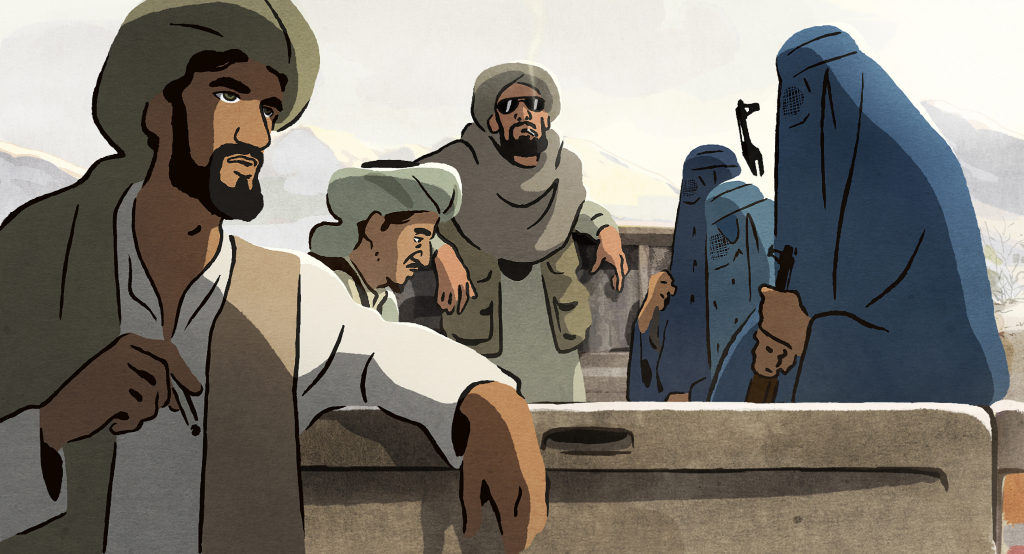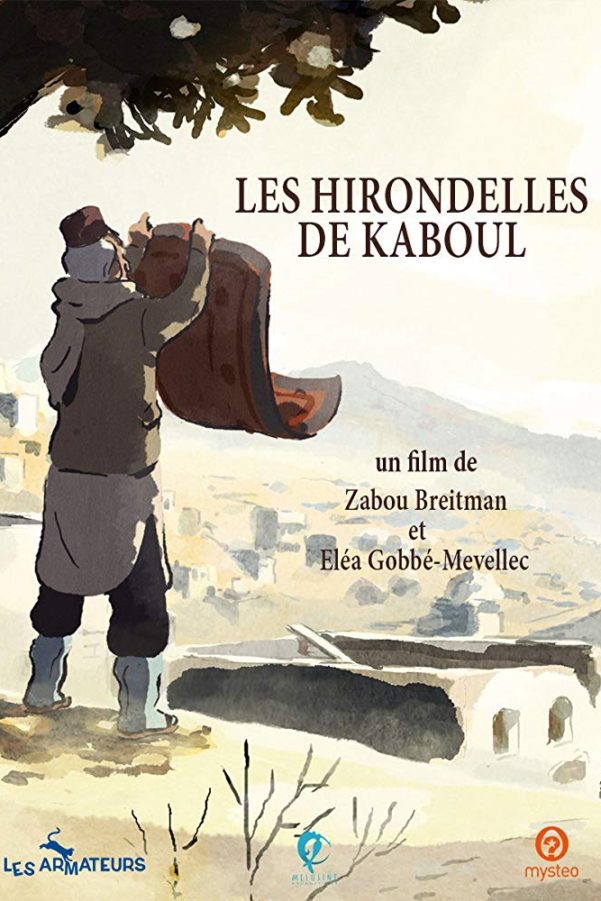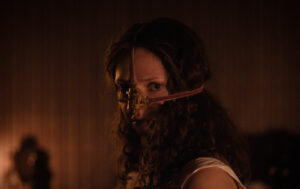The Swallows of Kabul (Les Hirondelles de Kaboul)

“We’ve already been killed, all of us. It happened so long ago, we’ve forgotten it.” So we’re told in Yasmina Khadra’s novel The Swallows of Kabul, now adapted into animation by Eléa Gobbe Mevellec, whose narrative positions the unutterable bleakness of Taliban rule onto the thwarted expectations of the academic class. Under systems of intolerance freedom is withheld: in the present and in memory. Tyranny deadens autonomy, the self, the ability to fail and flourish.
Summer 1998, Kabul: religious authoritarians have destroyed universities, cinemas and any symbols of perceived cultural decadence. Hypocrites enforce order while indulging in excesses for which they berate the population. Beautiful, educated Zunaira (Zita Hanrot) refuses the burka, spending most of the time cloistered indoors, cast out like the dwindling likeminded.
An accident with her young husband Mohsen (Swann Arlaud), indirectly brought about by the society’s strict treatment of women, pushes her towards execution. Mohsen is a bit of a dope, truthfully, although his complicity in misogynistic laws is suggestively depicted. The system enters his biology: his arm moves without him and casts the stone, caught up in the barbarity of crowds. Atiq (Simon Abkarian), another wayward man with good intentions, is a weathered sceptic. His wife is dying of cancer and he’s rendered quiet.
Mevellec’s animations are austere but effective. The lack of colour reflects the arid environs. It both produces a form of distance and allows for shocking violence. Deaths are bloody and candid, offering a potency and respect perhaps impossible in live action. The finale is brutal and lucid, tempered by a possible cultural resistance. Testosterone, opportunism and hatred fuel the antagonists.
There are incurious moments that treat learnedness and belief in liberty as inherently and always valuable. Hope doesn’t face sufficient critique – it is never considered morally ambiguous. False aspirations aren’t viewed as pernicious, posed against the Taliban’s obvious malevolence. Redemption can’t be always found in the university.
In this way the dialogue tends to abstraction: freedom, possibility, the future. It’s no clearer in 2019 whether the swallows have reclaimed or secured the rights gestured here. The film reaffirms the commitment to liberalism’s ideals in the wake of misery and despair, then and now. But the sacrifices linger; the pictures don’t flinch. From the particular, horrors are made universal and transcendent. No wonder we are all grieving.
Joseph Owen
The Swallows of Kabul (Les Hirondelles de Kaboul) does not have a UK release date yet.
Read more reviews from our Cannes Film Festival 2019 coverage here.
For further information about the event visit the Cannes Film Festival website here.
Watch a clip from The Swallows of Kabul (Les Hirondelles de Kaboul) here:


























Facebook
Twitter
Instagram
YouTube
RSS